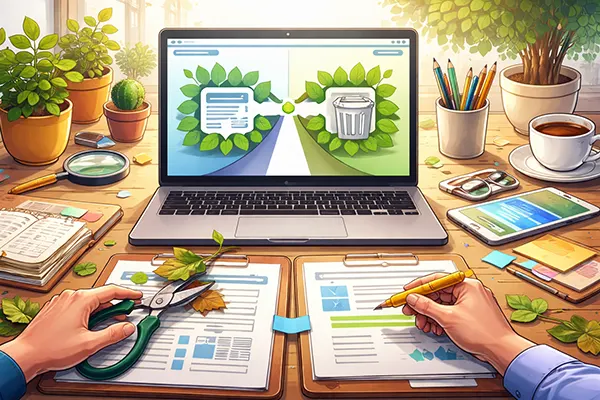
The Future of Copywriting: How Artificial Intelligence Redefines the Human Author
In the past few years, the evolution of artificial intelligence has reshaped creative industries, and copywriting is no exception. Once purely the domain of human thought, persuasion, and storytelling, it is now shared with machine learning models capable of producing entire campaigns in seconds. However, the role of the human author has not vanished — it is transforming. Understanding how AI and human creativity coexist is essential to defining the future of modern content creation.
The Emergence of AI in Copywriting
The appearance of advanced language models has changed how writers and businesses approach content production. AI can now analyse data, predict audience preferences, and generate text that meets specific goals. This efficiency saves time and allows companies to scale their marketing strategies faster than ever. Yet, it also raises important ethical and creative questions about originality and authenticity.
In 2025, AI tools have become integrated into nearly every digital marketing process. They support tasks such as keyword optimisation, tone adjustments, and multilingual localisation. While automation provides a significant advantage, the human factor remains crucial. A skilled copywriter ensures that the message aligns with brand identity and evokes genuine emotion — something algorithms cannot yet replicate fully.
As organisations increasingly rely on AI-generated materials, new standards for transparency are being developed. Readers want to know whether they are engaging with human-crafted or machine-assisted content. Ethical copywriting in the AI era therefore means acknowledging how technology contributes to the creative process while maintaining accountability.
The Balance Between Efficiency and Creativity
AI delivers efficiency, but human creativity still determines value. The challenge for modern copywriters is to merge the two seamlessly. Machines analyse behaviour and trends, while people shape ideas into meaningful narratives. Together, they create a hybrid approach where data informs imagination rather than replaces it.
In practice, copywriters now act as editors, strategists, and quality controllers of AI output. They evaluate the emotional tone, accuracy, and brand consistency of automated drafts. This collaboration highlights that creativity is not merely about producing words — it’s about context, empathy, and storytelling depth that technology alone cannot achieve.
Ultimately, AI does not replace writers; it empowers them to focus on higher-level tasks. Those who master this partnership are becoming architects of communication strategies rather than just content producers.
Ethical and Professional Challenges in 2025
With the rapid adoption of AI, the copywriting industry faces questions about integrity, authorship, and misinformation. It’s increasingly important to verify data sources and prevent the spread of synthetic or misleading information. The credibility of the written word depends on maintaining high editorial standards and ensuring that AI tools are used responsibly.
Professional copywriters are now required to disclose when automation contributes to their work. This transparency aligns with Google’s E-E-A-T principles — Experience, Expertise, Authoritativeness, and Trustworthiness — which prioritise reliable, human-centred content. These standards help audiences trust that what they read has been fact-checked and thoughtfully created.
Furthermore, continuous training has become an essential part of a writer’s career. Understanding AI tools, their capabilities, and limitations ensures that content remains both effective and ethical. By combining technological knowledge with human insight, modern copywriters strengthen their professional credibility.
Adapting to New Industry Standards
Regulatory frameworks are beginning to define how AI-generated content should be labelled and evaluated. Copywriters who adapt early gain a competitive edge, as compliance and ethical clarity are increasingly valued in digital communication. Clear authorship attribution helps preserve professional recognition in a machine-assisted world.
Industry associations are introducing certifications for AI-competent copywriters, focusing on responsible tool usage and data integrity. This new qualification system redefines what it means to be an expert in content creation, blending creativity with technical understanding.
By 2025, copywriters are no longer competing with algorithms — they are collaborating with them under transparent and structured frameworks that prioritise truth, originality, and user trust.

The Human Touch in the Age of Algorithms
While artificial intelligence excels at pattern recognition and linguistic precision, it cannot replicate human empathy. The most successful campaigns in 2025 are those that merge analytical intelligence with emotional resonance. Readers respond to authenticity — stories that reflect human experience, values, and voice.
Copywriters who prioritise narrative depth and audience understanding stand out in a market oversaturated with automated content. They bring individuality, cultural awareness, and moral perspective — all of which are beyond machine comprehension. Emotional storytelling remains the bridge between technology and humanity.
AI may guide structure and style, but it’s the human author who defines meaning. As creativity evolves alongside automation, the writer’s role becomes that of a cultural interpreter — transforming data into experiences that inspire, inform, and connect.
Looking Ahead: Collaboration, Not Competition
The next generation of copywriters will thrive by embracing AI as a collaborative ally. This partnership will lead to a creative revolution where innovation and authenticity coexist. Writers who adapt to this new dynamic will not only survive the technological shift but lead it.
Educational programmes are already incorporating AI literacy into creative writing and marketing courses. Future professionals are learning to use automation responsibly, understanding both its benefits and its ethical implications.
The evolution of copywriting reflects a broader transformation: a world where humans and machines co-create knowledge. By maintaining transparency, empathy, and authenticity, writers ensure that the art of words remains fundamentally human — even in an age shaped by algorithms.
Popular
-
 Mobile Push Notification Copy: Short, Usef...
Mobile Push Notification Copy: Short, Usef...Mobile push notifications remain one of the most direct communication channels between …
-
 Content Pruning vs Content Refreshing: How...
Content Pruning vs Content Refreshing: How...Every site collects content debt: pages that used to help but now …
-
 The Structure of a Persuasive Commercial T...
The Structure of a Persuasive Commercial T...Commercial copywriting in 2025 is no longer built around loud promises or …
-
 Why Brands Are Finding It Harder to Mainta...
Why Brands Are Finding It Harder to Mainta...Audience loyalty has long been viewed as a stable foundation for sustainable …
